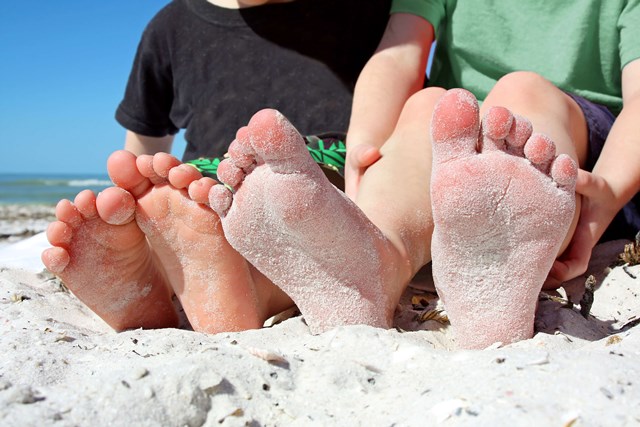Children can seem like to grow from little crawlers to running athlete’s in the blink of an eye, with a lot of bumps and trips along the way!
Below are some of the most common problems we see in the clinic that should be checked for in babies, toddlers, adolescents and teenagers.
MUSCLE & BONE:
Toe Walking
It’s very common for early walkers to walk on their tip-toes, and while this often develops into normal heel-toe-type walking, it can sometimes persist longer than is ideal. In these situations assessment is very important, not only to help choose the best treatment method, but also to screen for other possible health conditions which may be causing the toe walking.
In-Toeing (aka. “Pigeon toed”)
Young children (and even some adults) might stand or walk with their toes pointed inwards (towards the middle of the body. This can be linked with poor balance, tripping, or foot pain – however it can also have no other symptoms. This condition is often improved naturally over time, but can sometimes need deeper assessment & management.
Flat Feet and/or Heel/Achilles
Most young children have some degree of flat feet and develop arches under their feet until they’re similar to their parents – many of whom still have flat feet. This can be without pain, but is occasionally linked to pain in the bottom of the heel or back of the heel/Achilles. In these situations proper footwear is crucial and specific exercises may be implemented to help loosen & develop the feet & calf muscles.
Ankles Sprains / Rolling Ankles Often
Once kids get into sports it is common for them to ‘roll’ their ankles from once a year to once per week, with varying levels of injury. If this is happening regularly it can be very damaging and often doesn’t improve on it’s own, generally requiring some level of supportive footwear, ankle bracing/taping and strengthening of balancing ankle muscles.
Knocked & Bowed knees / Knee Pain
Knees can sometimes ‘knock’ (sitting closer together) or ‘bow’ (flaring out), either when standing or moving, and often concerns parents noticing this in children & teenagers. While this condition can improve on its own, and doesn’t always cause pain –
it is important to determine the cause is coming from below the knees (foot & ankle) or above (hip & thigh) and manage these causes appropriately.
SKIN & NAIL:
Warts
Warts can be picked up from many places and by people of any age, however children are at higher risk of catching the infection (which then grows the physical wart) as they have weaker immunity which is still growing, and tend to spend more time barefoot in shared areas & swimming pools. Simply treated (but sometimes persistently!) via removal of the lesion and changes to infective surfaces,
Ingrown Toenails
It surprises many people that children can get ingrown toenails, but the combination of fast growth, changing body shape and resulting ill-fitting shoes are a recipe for having a nail edge press into (or puncture) the skin of the toe. This can be as little as some mild redness & soreness, or as bad as full skin infection with swelling, pain & pus. Bad nail edges are easily removed in-clinic and infections resolved.
These are just a few of the problems that can affect children’s feet, ankles & knees, and it is important to remember that there is a difference between a little “growing pain” or a child walking “funny” on purpose vs. genuine muscle pains and structural misalignments.

